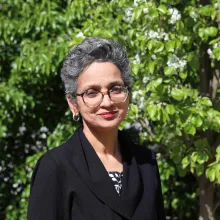Science Circus international capacity building
The mission - Astonishing science education in six countries over 10 weeks
Research themes
Project status
Content navigation
About
CPAS, working with local and international partners, operate Science Circus international capacity building projects in Africa, the Pacific islands and other countries including Myanmar, India and Japan. The projects aim to build capacity in science, technology, engineering and maths (STEM) education and communication, particularly in informal science learning and the science centre sector. The initiatives have two main formats:
- travelling in-country capacity building and outreach projects using low-cost everyday materials to showcase STEM through science shows in schools and public venues, workshops for teachers, interactive exhibits and community displays, and share strategic/management capacity building with our partners.
- In-depth short courses in Australia for leaders and pioneers of the sector from developing and developed nations, including Australia Awards Fellowships.
Partnerships are central to Science Circus international capacity building. The heart of the model is to collaboratively train, equip and further empower our partners so they can continue to provide impacts and drive the project in their countries. CPAS’s approach identifies individuals, universities, governments, museums and NGOs already on the innovative STEM communication mission. We team up to understand their country’s assets and needs, share global best practice, co-design content, and deliver it together so the program is targeted and relevant to local schools and communities – and sustainable. The goal is to establish ongoing, locally-led outreach programs and in the longer-term interactive science centres.
The projects’ principal supporter is the Australian Government Department of Foreign Affairs and Trade (DFAT). The model, while heavily adapted to suit each country, is based on the Shell Questacon Science Circus in Australia, a collaboration between ANU, Questacon – The National Science and Technology Centre and Shell Australia.
We gratefully acknowledge the support of AMF Magnets who have donated thousands of magnets to schools across Africa since 2015 and will also be contributing to the Pacific initiative. We welcome discussions with other corporate and industry partners – please contact us.
Science Circus Pacific
Science Circus Pacific aims to share the wonders of STEM with Pacific Island students, teachers and the wider community to create the curiosity, skills, knowledge and motivation needed to support individual careers and countries’ development.
More information can be found on the Science Circus Pacific project page.
Science Circus Africa
A forerunner to operations in the Pacific, CPAS founded Science Circus Africa in 2013, with support from Questacon, building on a decade of projects in South Africa.
Over four projects spanning ten African countries, Science Circus Africa has trained 499 African staff and reached 73,300 people – including training 815 teachers to use simple items to make science teaching engaging. Our African partners have gone on to independently run programs reaching over 150,000 people and counting, and the project is contributing to the development of science centres in several countries. These African-led programs demonstrate the program is effective at building capacity and producing sustainable outcomes. Science Circus Africa programs have toured Zimbabwe, Namibia, Botswana, Zambia, Malawi, Mauritius, Kenya, Tanzania, Uganda and South Africa.
CPAS also brought future leaders of the African science centre movement to Australia for training. In 2017, 15 people from eight countries underwent six weeks of intensive training as part of an Australian Government supported Australia Award Fellowship program. In tandem, ANU CPAS are also conducting research on science centre/outreach capacity building.
Video
ANU CPAS welcome additional collaborators, support and philanthropy for their work in Africa, the Pacific and beyond. Please contact Dr Graham Walker (g.walker@anu.edu.au) for more details.







